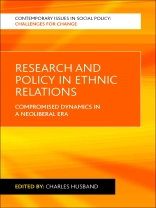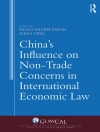In the field of ethnic relations the complex, often tortuous, interactions among academic researchers, research funders and those who use the research often result in social policy interventions that are poorly conceived and flawed in their implementation.
In this unique book, the contributors seek to develop a dialogue about the multiple constraints that skew research and its findings, and to kick-start a wider debate about the political context of current research and policy. In doing so, they aim to produce a renewed awareness of the current links between research and social policy in ethnic relations and to provide a critically reflexive basis for shaping interventions.
It will be of interest to academics working in higher and further education as well as to students at higher undergraduate and postgraduate level, and to a wide range of people working in ethnic relations policy fora.
Mục lục
Introduction ~ Charles Husband;
Constraint and compromise: university researchers, their relation to funders and to policymaking for a multiethnic Britain ~ Charles Husband;
‘Hating to know’: government and social policy research in multicultural Australia ~ Andrew Jakubowicz;
In-group identity and the challenges of ethnographic research ~ Yunis Alam;
Anthros and pimps doing the God trick: researching Muslim young people ~ M.G. Khan;
Reflections of a research funder ~ Emma Stone;
The European Union Agency for Fundamental Rights: linking research, policy and practice ~ Ioannis N. Dimitrakopoulos;
The value of research for local authorities: a practitioner perspective ~ Stan Kidd and Tony Reeves
Giới thiệu về tác giả
Dr.Charles Husband is an interdisciplinary social scientist with a commitment to policy relevant research in the area of ethnic relations. He is Professor Emeritus in Social Analysis at the University of Bradford, Docent in Sociology at the University of Helsinki, and Visiting Professor at the Sami University College, Kautokeino, Norway.












